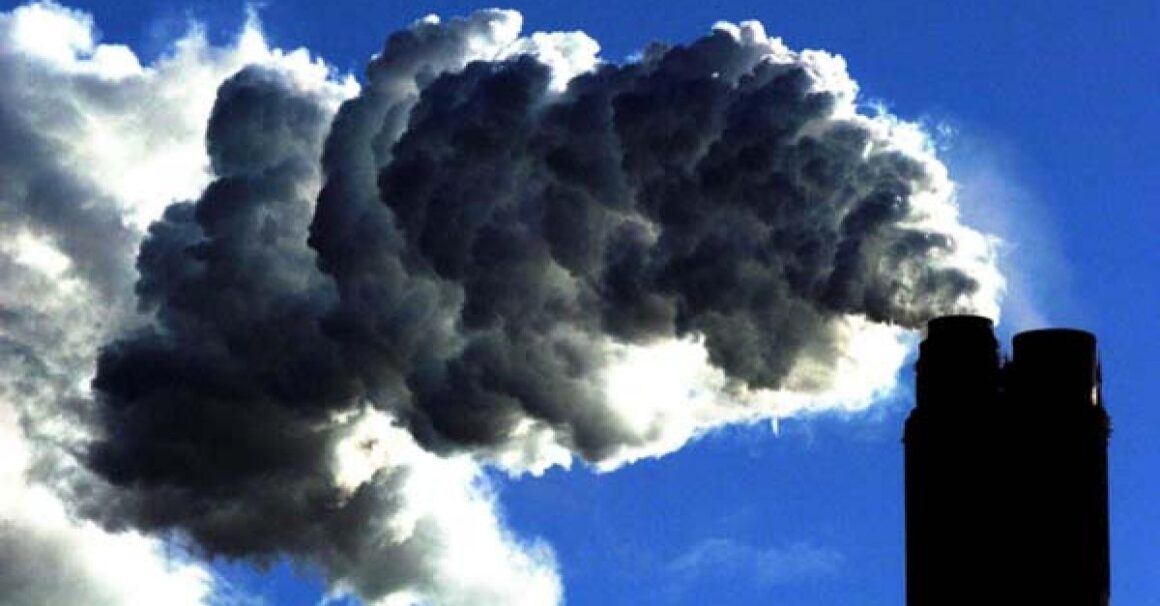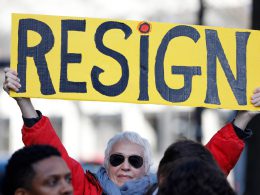By Ben Samond
This year’s UN climate conference, COP27, ended just two days before the first football match kicked off in a World Cup so energy-intensive that its total emissions are set to equal those produced annually by the Democratic Republic of the Congo. The backdrop to COP27 was a year in which Pakistan was first scorched by record heatwaves and then one-third of its surface area flooded. Record temperatures across Europe were also recorded, and multiple countries experienced their worst droughts in centuries.
COP27 also took place in a year which saw emissions from fossil fuels reach their highest level ever, as the fossil fuel industry doubled its 2021 profits to $4 trillion!
Rival states unable to agree on basics
COP27 involved two weeks of negotiations in Sharm el-Sheikh, a holiday resort located in an Egypt ruled by a brutal regime under which protest is illegal and around 60,000 political prisoners are locked up. Of the 35,000 COP27 attendees, a record 636 were fossil fuel lobbyists – up 25% from COP26 last year.
Delegates from gas-exporting countries – which Egypt hosted in a separate meeting prior to COP27 kicking off – including big US and Canadian natural gas investors, and corporations such as BP, were all keen to promote the benefits of natural gas. In reality, this fossil fuel, which is only slightly less polluting than oil and coal, will still bake the planet. It produces methane, which is 120 times more powerful than CO2 at trapping heat, yet the final deal of the conference stated that “low emission” energy (understood by all to mean natural gas) should be part of the solution to rising temperatures.
The extremely vague COP26 commitment to phase down the unabated use of coal was also not expanded on, and an agreement to phase out fossil fuel consumption entirely was not achieved. Saudi Arabia, which is home to the world’s biggest oil company, “Saudi Aramco” put a big emphasis on the pipedream of carbon capture technology, which it hopes will help it to achieve net zero emissions by a distant 2060. Shortly after COP27 ended, Saudi Arabia experienced severe flooding as three years of rain fell in six hours.
Although western capitalist delegates will place blame for inaction on the Gulf states, they are no less responsible, as their ability to decarbonise sooner is because they simply outsource their emissions to suppliers overseas. Gulf States may proceed full speed ahead with fossil fuel production, but it is only because there is a demand for it from states and corporations from the advanced capitalist countries.
A weak agreement for compensation
The only so-called breakthrough was an agreement to a “loss and damage fund”, which is to be money set aside by the wealthiest countries – which bear the most responsibility for climate change – for use by the poorest countries to rebuild after the damage is done. However, the agreement is hopelessly vague and so lacking in detail as to be almost meaningless.
China, which is the biggest polluter, is not obliged to contribute because it is classified as a ‘developing’ country. This is a designation that China and others such as Saudi Arabia are keen to retain.
Such a fund will hardly inspire hope to many in the Global South given that the advanced capitalist countries are falling far short of their 2009 pledge to spend $100 billion a year in climate aid. The fund, which is ultimately futile, is an attempt to deal with the symptom but not the underlying problem. Furthermore, this is money which, invariably under capitalism, will be insufficient and mainly find its way to private contractors or corrupt regimes, not workers or communities.
Capitalism offer no way out
The relentless pursuit of short-term profits for an already super-rich elite supersedes even the most basic measures to limit climate breakdown. As inaction begins to yield even more extreme and devastating weather events, working-class and poor people, who – as always – will bear the brunt of the crises, will have to depend on emergency services which are becoming increasingly overwhelmed and incapable of operating effectively due insufficient funding, staff shortages and outsourcing to the private sector. This is the logic of capitalism.
The inability of capitalist politicians to address the worsening climate crisis, along with crises in the cost of living, housing and healthcare demonstrate that the only solution to these problems is the ending of their for-profit system. Imperialist wars and a rise in right-wing, anti-LGBTQ+ and anti-feminist reaction are also clear signs that their system offers only misery. Whilst it may not be obvious to oil executives or liberal politicians, young people, who are especially afflicted by the system’s failings, understand more and more clearly where the problem lies.
Collectively, working class people – the majority on our planet – have the capacity to defeat capitalism. Urgently, a democratically socialist planned economy and public ownership of the key sectors of the economy is required, which can guarantee a rapid transition from fossil fuels to renewables, whilst simultaneously deploying society’s vast wealth to restructure production, travel and energy infrastructure in an ecologically sustainable way.












